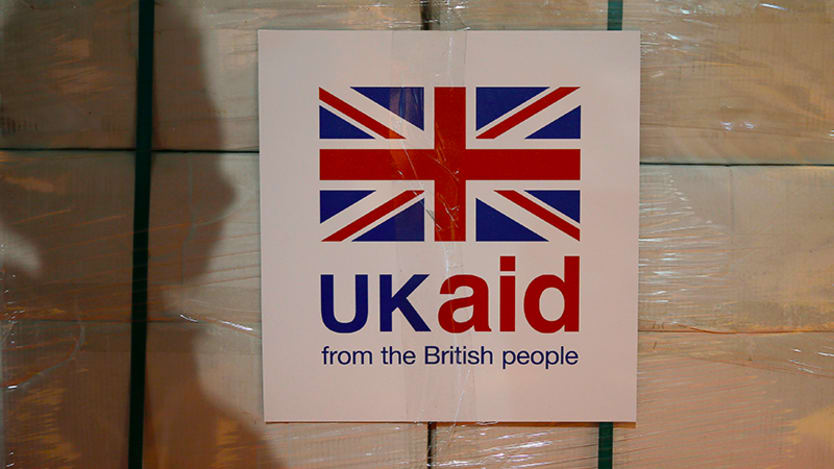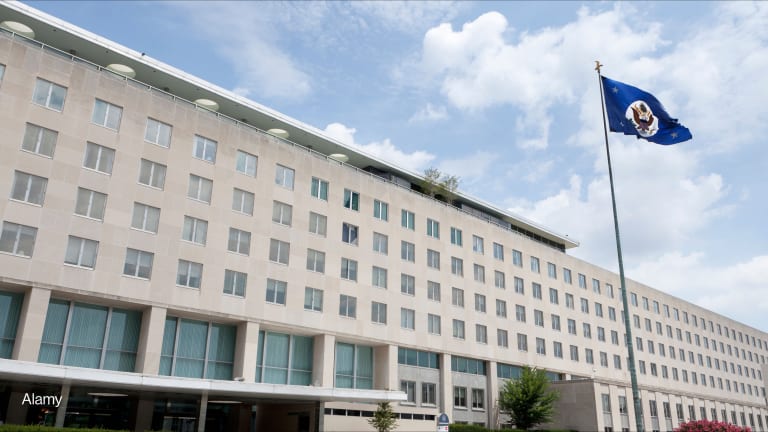DFID could remain a stand-alone department but lose its secretary of state

LONDON — The U.K. development community has begun the year with more questions than answers about the fate of the Department for International Development, following a string of media reports about the government’s plans this week — but silence from the government itself.
After the Conservative Party won a landslide victory in December’s election, speculation mounted that a newly empowered Prime Minister Boris Johnson would merge DFID with the Foreign & Commonwealth Office — which it was spun out of 23 years ago — as part of a mooted restructuring of the civil service.
“Diverting aid towards U.K. foreign policy, commercial and political objectives would undermine the U.K.’s global influence at a critical moment.”
— Stephanie Draper, CEO, BondAmid strong opposition from U.K. civil society — as well as members of Johnson’s own party — several newspapers reported this week that the plan had been dropped, to the relief of aid advocates.
What happens when an aid department is folded?
Devex looks at the cases of Canada, Australia, and Norway — which have all seen their development departments merged with their foreign offices — to understand the impact on aid.
The turnabout is “the best piece of #globaldev news,” Samy Ahmar, head of health at Save the Children U.K., wrote on Twitter. “Britain has what is probably the best bilateral development agency in the world. Let's keep it that way !”
But the celebrations were short-lived, as just 24 hours later, The Times newspaper reported that while DFID will remain as a stand-alone department, responsibility for it could be taken away from Secretary of State for International Development Alok Sharma — whose post would be scrapped — and handed to the foreign secretary, Dominic Raab.
While many aid advocates see this as preferable to eliminating the department completely, it still raises fears about what it would mean for the quality and poverty focus of U.K. aid.
“Diverting aid towards U.K. foreign policy, commercial and political objectives would undermine the U.K.’s global influence at a critical moment, and this remains a real risk if DFID is merged or loses its dedicated Secretary of State,” wrote Stephanie Draper — CEO of Bond, an umbrella group for U.K. NGOs — in an email. “It would also be incredibly difficult for a single Secretary of State to have complete oversight of both international development and the U.K.'s humanitarian responses, as well as foreign policy,” she continued.
“Both [DFID and FCO] are important departments with complex portfolios and have distinct but at times complementary roles that need dedicated attention. The best way to ensure U.K. aid continues to help the world’s most vulnerable people is to have a dedicated Secretary of State for International Development,” Draper said.
Compared with a merger, the arrangement would reduce the chance of staff dismissals and the exodus of aid expertise that has been seen in other countries where development departments have been folded.
A former senior DFID official told Devex that it could mean a return to something like the situation before DFID was created in 1997, when aid was administered and managed by a distinct body — the Overseas Development Administration — which sat within FCO and reported at the Cabinet level to the foreign secretary.
However, the former official cautioned that the new dynamics of U.K. aid spending — which has seen an increasing proportion of aid spent by other government departments, including FCO — raise the risk of aid being diverted for other policy goals and that transparency about decision-making on aid spending in this scenario would be key.
Despite the various news reports, the government is not expected to announce details of any reorganization until after the U.K. leaves the EU at the end of January. DFID staffers remain in the dark about the future of their department. Although officials have confirmed to the media that plans to merge DFID and FCO have been abandoned, 10 Downing Street did not respond to repeated requests for comment about the issue, or about the state of play surrounding Cabinet positions.
Meanwhile, a spokesperson for the Cabinet Office said simply that things will continue as normal until an announcement is made.
Search for articles
Most Read
- 1
- 2
- 3
- 4
- 5








